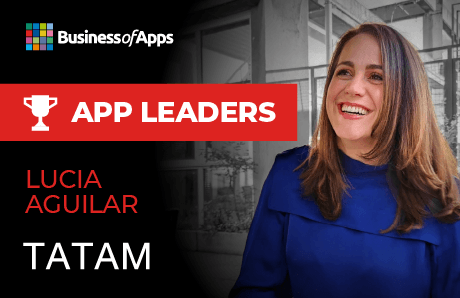Angèle is a Senior Product Manager at Cleo, where she blends behavioral science and AI to build financial tools that actually help people. With 6+ years of experience in product roles across fintech and community platforms like Wise and Peanut, she’s driven by a deep curiosity for human decision-making and a love for crafting experiences that feel both smart and joyful.
Outside of work, Angèle is a long-distance runner who swears her best ideas come mid-run. She also organizes yoga retreats, finding balance (and Wi-Fi) in the French countryside whenever she can.
In your own words, what’s your role in the app business right now?
Right now, I work on the Cleo Card. My role sits at the intersection of strategy and execution: I work with cross-functional teams to diagnose problems, design solutions, and ship features that make a meaningful difference to our users’ financial lives. That means everything from defining the card vision and validating ideas with research to prioritizing ruthlessly and iterating fast.
How did you end up working in apps?
I started out in consulting and quickly realized it wasn’t for me. I craved creativity, ownership, and actual impact (not just slides). So I left, joined Le Wagon’s coding bootcamp, and fell in love with building things. I didn’t want to become a full-time engineer, but I found my sweet spot in product: blending tech, design, and human behavior to solve real problems. Since then, I’ve worked across fintech and consumer apps, and I haven’t looked back.
What are you most excited about in apps right now?
I’m most excited about how apps are starting to build emotional relationships with users, especially through AI. We’re moving beyond transactional tools into experiences that feel truly personal, supportive, and even human. In fintech, that means not just showing someone their balance but understanding their fears, goals, and habits, and responding in a way that builds trust over time. I think the next wave of apps will feel more like companions than tools, and I’m excited to be part of shaping that shift.
Is there anyone you’d like to shout out to who has influenced your journey in the app industry?
Yes, Rosie Hoggmascall, PLG consultant, had a huge impact on me. She encouraged me to start writing at a time when I was dealing with major imposter syndrome and doubting whether I had anything valuable to say. Her confidence, clarity, and boldness as a leader helped me find my own voice, both in writing and in product. That push was a turning point, it helped me show up more fully in my work and eventually led to my articles being published by UX Collective.
What’s in your app tech stack?
Honestly, I don’t think the tools matter that much, it’s more about how you think than what you use. That said, I always keep a paper notebook close by to track my to-do list and sketch out messy thoughts. Beyond that, I use the usual suspects: Notion, Linear, Figma, Slack, and heaps of whiteboards (digital and real). But the notebook’s non-negotiable.
What do you like most about working in apps?
What I love most is how universal apps are — everyone uses them, talks about them, relies on them. That makes building them feel both fun and meaningful. You’re not working in a vacuum; you’re creating something that real people interact with every day. It’s the perfect blend of creativity, impact, and curiosity.
What one thing would you change about the app industry?
I’d love to see the app industry shift away from building for pure growth and toward creating more meaningful, long-term value. Too many apps are designed to drive engagement at all costs but forget to actually support people. One area where I see huge untapped potential is femtech. There’s still so much underinvestment in products built for women’s health, wellbeing, and everyday realities.
If you weren’t working in apps what would you be doing?
I’d probably be somewhere in the countryside, opening a sauna and organizing yoga retreats. I love creating spaces where people can slow down, reconnect with themselves, and feel good in their bodies. It’s a very different pace from building apps, but at the core, it’s still about designing experiences that support people in meaningful ways, just with more steam and fewer sprint reviews.
iOS or Android?
iOS.
What apps have been most useful to you over the last year?
Google Maps.
What’s on your Spotify playlist?
Rosalia.
Any TV show recommendations?
I’m watching ‘Severance’ at the moment, it’s great.
Do you know someone driving change and growth in the app industry? Nominate an app leader here.








